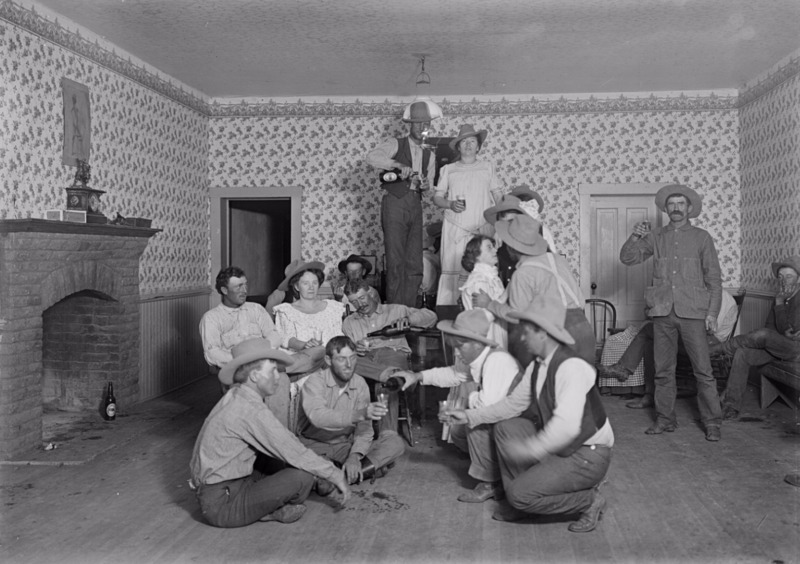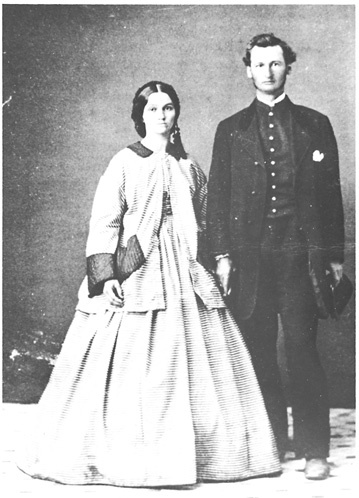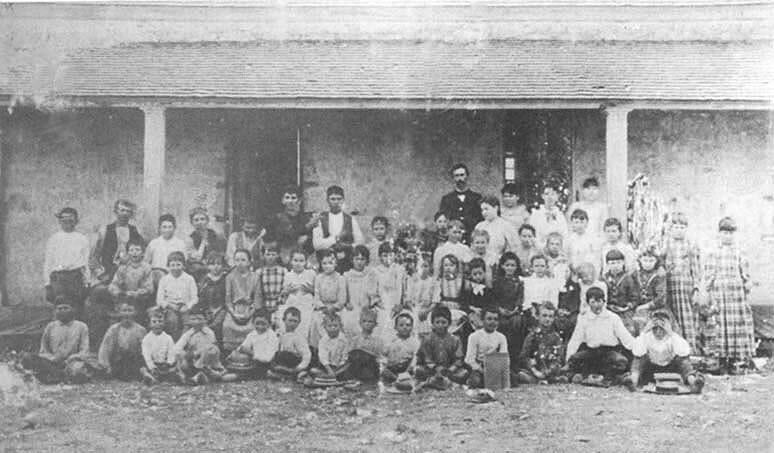Empowered Matriarchy
In addition to their forays into masculine spheres of military command and sport, officers’ wives maintained their roles at home. Despite their husbands’ absence, they continued to attend to family affairs, their children’s education, and property management. Their elevated status at the frontier fort, however, accordingly expanded the scope of their duties and authority. No longer bound to care for a single household, officers’ wives assumed responsibility for the welfare of all persons in the fort.1
For instance: In 1861, when 1st Lieutenant William B. Lane left Fort Fillmore in New Mexico to pursue Indians, his wife Lydia was effectively in command of the post, the ten men left behind to defend it, and its small treasury:
There was little for the troops to do when winter came, so officers’ wives arranged recreation for an entire fort’s population – soldiers, their dependents, and camp followers alike. Dances, plays, operas, and feasts were regular forms of entertainment despite the logistical difficulties of living so far from larger settlements.3 In 1878, Frances Roe and other officers’ wives hosted four companies (hundreds of soldiers) wintering at Fort Shaw:
Though the U.S. government was supposed to provide education to willing fort inhabitants (lower-ranking soldiers, immigrants, and disadvantaged children), the support was often insufficient or absent. Therefore, the more educated officers’ wives, traditionally responsible for their own children’s academic and moral instruction, stepped beyond their private spheres into public education. They organized book clubs and Sunday schools, and pursued other academic interests within their garrison community.5
1 Mary L. Williams, “Ladies of the Regiment: Their Influence on the Frontier Army,” Nebraska History 78 (1997): 160-161.
2 Lydia Spencer Lane, I Married a Soldier (Albuquerque, NM: University of New Mexico Press, 1987), 100-101.
3 Ellen McGowan Biddle, Reminiscences of a Soldier's Wife (Philadelphia, PA: Lippincott, 1907), 167.
4 Frances M.A. Roe, Army Letters from an Officer’s Wife, 1871-1888 (New York, NY: Appleton, 1909), 216.
5 Mary L. Williams, “Ladies of the Regiment: Their Influence on the Frontier Army,” Nebraska History 78 (1997): 162-163.
6 Emily McCorkle Fitzgerald, An Army Doctor's Wife on the Frontier: Letters from Alaska and the Far West, 1874-1878, ed. Abe Laufe and Russell J. Ferguson (Pittsburgh, PA: University of Pittsburgh Press, 1962), 267, 273.


